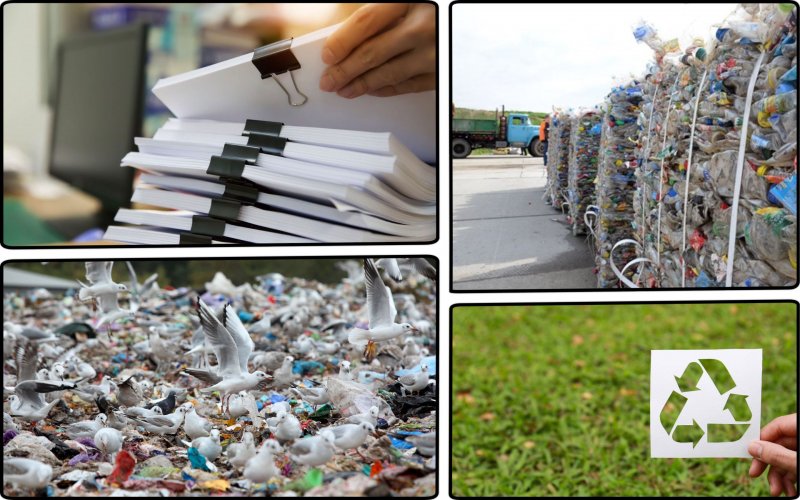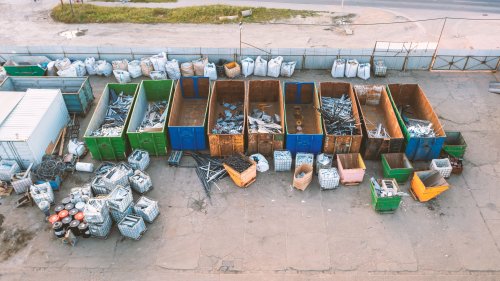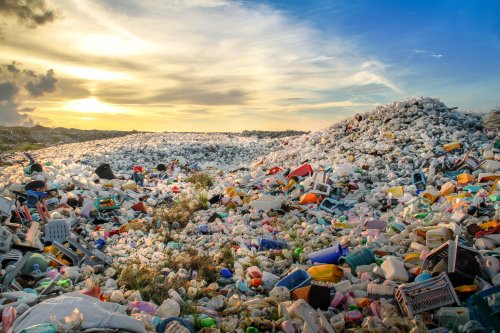The Ministry of Environmental Protection and Natural Resources has published a draft national waste management plan until 2033 and an action plan for it, which will be implemented in 2024.
The plan envisages simultaneous work on improving and developing legislation, informing the public, and creating infrastructure for managing household, hazardous, and other waste, the Ministry of Environment reports.
The Action Plan of the National Waste Management Plan until 2033 contains the following provisions:
- General
- Improvement and approximation of national legislation to the requirements of European legislation (2024-2025 years);
- Implementation of economic tools to improve waste management (2024-2026 and after the end of martial law);
- Improvement of the institutional structure and strengthening of personnel potential in the field of waste management (2024-2033);
- Measures to prevent clogging and clean up clogging areas ( 2024-2033);
- Measures to clean up historical waste sites, in particular liquidation of unauthorized landfills and waste whose owner has not been established (after the adoption of certain legislative norms).
– Household waste
- Formation of state policy (within a year after the adoption of the law "On waste management");
- Creation of an effective system of collection and removal of household waste (2024-2033);
- Creation of infrastructure for recovery of household waste (2024-2033);
- Creation of infrastructure for the removal of household waste (after the adoption of certain norms), in particular, the construction of regional landfills for non-hazardous waste, reclamation of landfills and landfills, etc.
- Hazardous waste
- Formation of state policy (2024-2033);
- Creation of processing infrastructure (2025-2033).
– Industrial waste
- Formation of state policy (2024-2025);
- Creation of processing infrastructure (2025-2030).
– Mining industry waste
- Formation of state policy (2024 – within a year after the adoption of the law "On waste management of the extractive industry");
- Creation of infrastructure (2027-2034, after certain periods after the adoption of new norms).
– Construction and demolition waste
- Formation of state policy (2024);
- Creation of processing infrastructure (2024-2030).
– Waste generated due to damage (destruction) of buildings and structures as a result of hostilities, acts of terrorism, sabotage or work to eliminate their consequences
- Creation of infrastructure for the management of destruction waste (2024-2033).
– Agricultural waste
- Formation of state policy (2024-2030);
- Creation of infrastructure for plant and animal waste management (2024-2033);
- Improving the management of chemical plant protection products (2024-2033).
– Medical waste
- Formation of state policy and creation of infrastructure (2024-2030).
– Packaging waste
- Formation of state policy (within a year after the adoption of the law "On packaging and packaging waste");
- Creation of infrastructure (2024-2030).
– Waste electrical and electronic equipment
- Formation of state policy (one year after the adoption of the law "On waste management" – within one year after the adoption of the law "On waste electrical and electronic equipment");
- Creation of processing infrastructure (2024-2030).
- Waste batteries, batteries and accumulators
- Formation of state policy (within one year after the adoption of the Law "On Batteries and Accumulators");
- Creation of processing infrastructure (2024-2030).
– Decommissioned vehicles
- Formation of state policy (within a year after the adoption of the law "On waste management");
- Creation of infrastructure for collection, storage, dismantling of decommissioned vehicles, reuse and recovery of waste generated after disassembly of decommissioned vehicles (2024-2030).
– Waste lubricants (oil) and tires
- Formation of state policy and creation of infrastructure (2024-2030).
– Creation of an effective sewage sludge management system and infrastructure for sewage sludge treatment (2024-2033)
– National program for reducing biowaste disposal (2024-2033);
– National waste prevention program (2024-2033).
Tetyana Omelyanenko, an expert on waste management at the Kyiv School of Economics, pointed out on Facebook that the information about the cost of construction of waste processing plants is also different in various publications of the Ministry of Environment and Forestry and its head, Ruslan Strilets.
"Maybe there [in the draft plans - ed. ] I will find an interpretation of where the 207 plants with a total value of 4 billion euros or US dollars came from (in various publications of the minister, the information is different). Some have 4 billion, then only for 5 plants in the Odesa region," she wrote.
Earlier, EcoPolitic wrote, that the Ministry of Environmental Protection and Natural Resources has developed a draft law "On the environmental tax for the disposal of waste and the placement of mining waste", which provides for a increase in the tax rate for the disposal of mixed household waste by 10 times.
As EcoPolitic previously reported, experts rated the work of the Minister of Environment Protection and Natural Resources Ruslan Strilets in 2023 at 4 on a ten-point scale, in particular due to the lack of transparency and accountability of the ministry's work.





